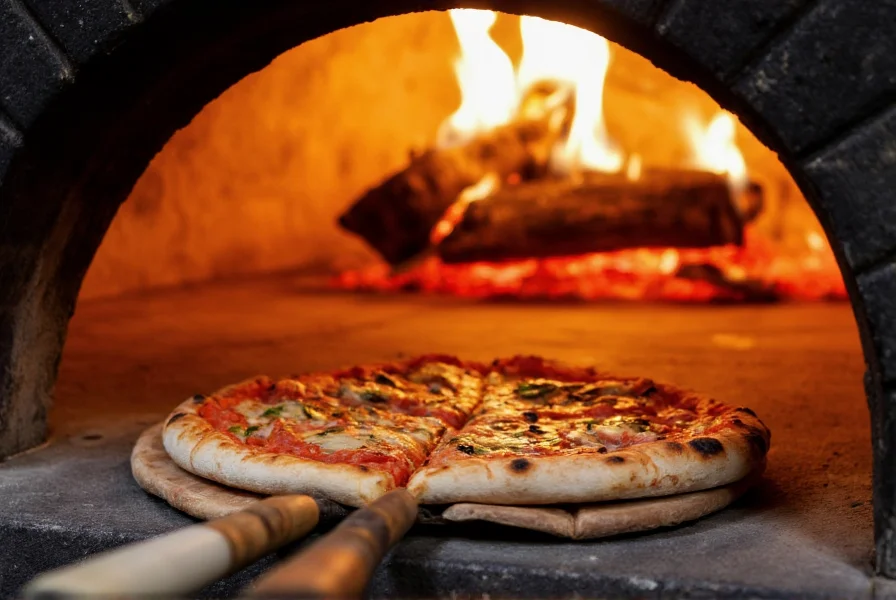When searching for information about pepper moon, many users want to understand what this establishment offers beyond just being another pizza restaurant. Unlike generic pizza chains, Pepper Moon distinguishes itself through adherence to the Associazione Verace Pizza Napoletana (AVPN) standards, which govern authentic Neapolitan pizza preparation.
The Origins of Pepper Moon
Founded in Naples, Italy in 2010, Pepper Moon emerged during a global resurgence of interest in authentic Neapolitan pizza. The name combines pepe (Italian for pepper) with moon, creating a memorable brand that references both a common pizza topping and the circular shape of pizza resembling the moon. This clever naming reflects the restaurant's commitment to Italian culinary traditions while maintaining approachability for international audiences.
Culinary Approach and Menu Highlights
Pepper Moon's menu centers around DOC (Denominazione di Origine Controllata) certified ingredients sourced directly from Italy. Key menu items include:
| Dish | Key Ingredients | Preparation Method |
|---|---|---|
| Marinara | San Marzano tomatoes, garlic, oregano, extra virgin olive oil | Wood-fired at 900°F for 60-90 seconds |
| Margherita DOC | Fior di Latte mozzarella, San Marzano tomatoes, fresh basil | Wood-fired with precise temperature control |
| Diavola | Spicy salami, tomato sauce, mozzarella, chili flakes | Traditional Neapolitan preparation method |
The restaurant strictly follows AVPN guidelines, which require pizza dough to consist only of water, flour, yeast, and salt, with a maximum preparation time of 24 hours for fermentation. This attention to detail creates the characteristic soft, elastic crust with leopard spotting that defines authentic Neapolitan pizza.

Global Expansion and Locations
What began as a single location in Naples has grown into an international presence with over 45 restaurants across 12 countries. Pepper Moon maintains consistency through rigorous chef training programs that require certification from the AVPN. Current markets include:
- Italy (15 locations)
- United Kingdom (8 locations)
- Japan (7 locations)
- United States (5 locations)
- South Korea (4 locations)
- Additional locations in France, Germany, Singapore, Thailand, and Australia
Unlike many pepper moon pizza chain locations that adapt menus significantly for local tastes, this brand maintains remarkable consistency in its core menu while incorporating limited regional specialties. For example, the Tokyo location offers a yuzu-infused olive oil option, while the New York locations feature locally-sourced greens for salads.
Dining Experience and Atmosphere
Pepper Moon restaurants typically feature open kitchen concepts where diners can watch pizza makers (pizzaioli) prepare dough by hand. The interior design blends industrial elements with warm Italian aesthetics, creating what many describe as an authentic italian pizza restaurant pepper moon experience. Most locations operate on a counter-service model with table delivery, keeping prices accessible while maintaining quality.
Quality Control and Training
Central to Pepper Moon's success is its comprehensive training program for pizzaioli. New chefs undergo a six-week certification process that covers:
- Dough preparation and fermentation science
- Wood oven temperature management
- Ingredient selection and handling
- Traditional shaping techniques
- Quality control standards
This rigorous approach ensures that whether you're dining at pepper moon restaurant locations in Milan or Manhattan, the pizza maintains consistent quality and authenticity. The company also conducts regular ingredient audits to verify that all components meet their strict sourcing requirements.
Pepper Moon in the Competitive Landscape
While numerous pizza chains exist globally, Pepper Moon occupies a specific niche between fast-casual pizza operations and high-end Italian restaurants. It appeals to diners seeking authentic italian pizza restaurant pepper moon experiences without fine dining formality or pricing. Market analysts note that the brand has successfully differentiated itself through its AVPN certification and transparent sourcing practices, which resonate with increasingly ingredient-conscious consumers.
Frequently Asked Questions
What makes Pepper Moon different from other pizza chains?
Pepper Moon distinguishes itself through AVPN certification, adherence to traditional Neapolitan pizza preparation methods, and strict ingredient standards. Unlike many pizza chains, they use only wood-fired ovens, DOC-certified Italian ingredients, and maintain consistent preparation techniques across all locations without significant menu localization.
Does Pepper Moon offer gluten-free pizza options?
Most Pepper Moon locations offer a limited gluten-free menu featuring one or two specialty pizzas made with alternative flours. However, they maintain separate preparation areas due to their focus on traditional Neapolitan pizza, which by AVPN standards cannot be gluten-free. Customers with gluten sensitivities should check with their local restaurant for specific offerings.
Is Pepper Moon a franchise or company-owned operation?
Pepper Moon operates primarily as a company-owned chain with strict quality control measures. While they have expanded internationally, they maintain direct ownership of most locations to ensure consistency in food quality and preparation methods. This approach differs from typical franchise models and supports their commitment to authentic Neapolitan pizza standards.
What are the signature dishes at Pepper Moon?
The signature dishes include the Margherita DOC (featuring Fior di Latte mozzarella and San Marzano tomatoes), the Marinara (tomato, garlic, oregano), and the Diavola (spicy salami). Many locations also offer regional specialties while maintaining the core Neapolitan pizza offerings that define the brand's identity as an authentic Italian pizza restaurant.
How does Pepper Moon maintain consistency across international locations?
Pepper Moon maintains consistency through centralized chef training programs requiring AVPN certification, strict ingredient sourcing protocols, and regular quality audits. All pizzaioli undergo a six-week certification process, and the company controls key ingredient supply chains to ensure that essential components like flour, tomatoes, and mozzarella meet their specifications regardless of location.










 浙公网安备
33010002000092号
浙公网安备
33010002000092号 浙B2-20120091-4
浙B2-20120091-4